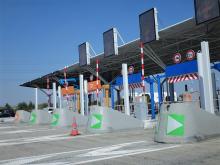How can developing countries get to net zero in a financeable and affordable way?
Public-private partnerships: Key to Caribbean recovery
Many Caribbean countries are facing significant fiscal constraints to improving, or even maintaining, vital public projects in transportation, health, energy, and other sectors because the pandemic has led to a sharp decline in tourism revenue—a mainstay of the region’s economies. The fiscal downturn is exacerbated by complex issues such as the region's vulnerability to natural hazards and the effects of climate change.
The Future of Government: What does it mean for infrastructure finance?
Recognizing that governments across the globe find themselves at an important inflection point—with overlapping crises such as the COVID-19 pandemic, the war in Ukraine and other conflicts, sharp economic slowdown, and the effects of climate change that will touch us all—the World Bank recently launched a report on The Future of Government.
Creating investor “buzz” about PPPs through market sounding & project pipelines
Private Participation in Infrastructure (PPI) Resources
Global Infrastructure Facility's dedicated resources to support governments
Africa Community Forum: Climate-Smart PPPs for a Green, Resilient and Inclusive Recovery
The combination of rapid urbanization and increasing vulnerability due to climate change is putting urgent pressure on the infrastructure of emerging and developing economies (EMDEs). At the same time, these economies have limited resources to cope with disasters, constraints that have been further exacerbated by the effects of the ongoing pandemic.
PPP Legal Frameworks Post Covid-19
PPP Legal Frameworks Post Covid-19
To remedy impacts of the current COVID-19 crisis on PPP programs and projects, governments are analyzing possible actions to stabilize markets and prevent project failures. In most cases, these measures have been ad hoc and of temporary nature such as modifying and/or suspending relevant PPP contract provisions. What are the long-term implications of the current pandemic and possible similar future crises on legal frameworks for PPP?
Toll Road PPPs: Identifying, Mitigating and Managing Traffic Risk
Through PPP models, toll revenues can be used to service private sources of finance that can enable fiscally-constrained governments to fund new road construction, improve existing roads and ensure long-term high quality maintenance. However, the credit quality of these kind of PPPs and the associated cost and availability of finance are heavily dependent on project parties being able to accurately forecast traffic and revenues over a horizon sometimes decades in the future.


